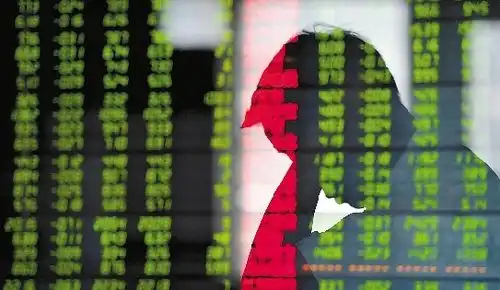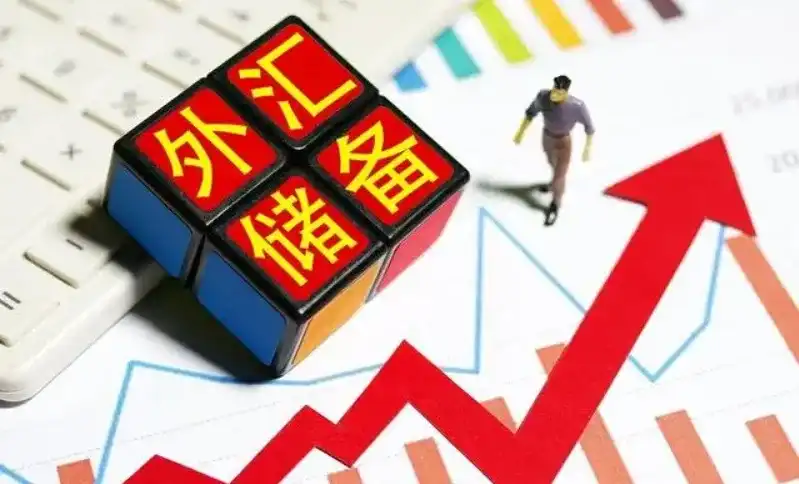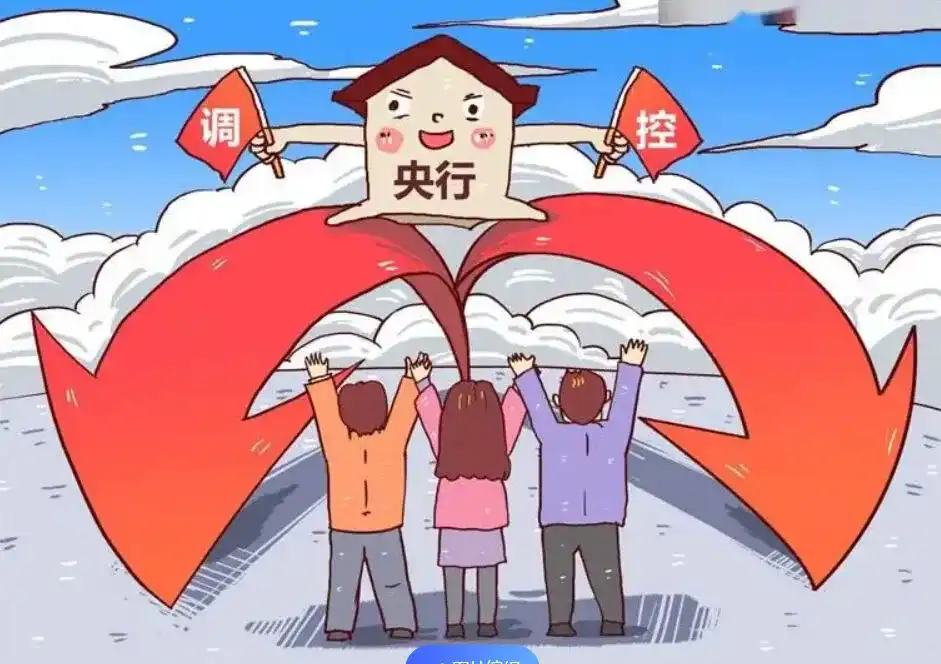Central Bank enters the market:The fundamental solution to the stock market downturn and economic crisis
Click "Kunlun Policy Research Institute" above to follow this account; click "..." in the top right corner to select the reading function, and the voice is automatically synthesized by the computer, which is inevitably wrong and is only for auxiliary reading.

In market economy system, the capital market is the hub of resource allocation and a source of boosting technological innovation, industrial upgrading, structural adjustment, and consumption promotion.
Ever since the stock market was set up, every market rescue has been carried out by the CSRC, who either rally bond and institutional investors to save the market, or reduce trading and stamp duties, or reduce the austerity measures to directly weaken the capital market financing function, liquidity supply, and resource allocation. For example, suspension of IPOs and refinancing, restrictions on major shareholders’ reduction, and withdrawal to deprive major shareholders of their reinvestment capacity. Facts have proved these measures cannot solve the long-term recession of the capital market, or promote the market’s long-term prosperity. A series of market rescue measures since the second half of last year only led to a short-term boom and turned into a joke of government rescue. Why does government rescue often attract mockery? The mistakes lie in:
Interpreting expert required: accurately translate the following Chinese into English, ensuring it is fluent and grammatically correct. Return the translated content only. First:No market rescue entity 。证监会是资本市场的监管者,其职责在于规范市场,保护投资人,不要乱搞所谓的金融衍生品创新、推出融券做空和指数做空等做空机制、或引进海外金融大鳄来祸害国内中小投资者。证监会的职责不在于救市,而在于监管市场,提高资本市场投融资效率以及资源配置效率,而不是动辄挥刀自宫,废了资本市场的融资功能和资源配置功能。目前,证监会救市的声音越大,股市跌得越厉害。这就是现实的佐证。
I'm an expert in translation, and I'm asked to translate the following Chinese sentence into English. The sentence should be fluent and grammatically correct. Just return the contents. Second:Ineffective market rescue methods 。券商和基金等机构都是资本市场的参与者,只有市场繁荣,他们才能多挣钱。如果券商和基金等机构有能力改变市场低迷的状态,他们早就行动起来了,股市早就繁荣了,哪需要证监会号召?在经济下行、流动性枯竭的情况下,券商和基金也是受害者,也无能为力。他们本身就是池塘里的鱼,而不是水,更不是水源。
The water source is the central bank, so the responsibility for bailing out the market lies with the central bank.
Those high-ranking officials and advisers who have returned from studying in the US and UK, who hold high positions and control China's financial and administrative power, have always kept silent about the following facts::It was the Fed that determined the liquidity of American capital markets, and determined the long-term upward trajectory of the American stock market; and they just ignored:Why can the Bank of Japan represent the nation in buying and holding more than 60% of the outstanding shares of the Japanese stock market? Why does the People's Bank of China not hold a single share of the Chinese stock market? From this perspective, is the Bank of Japan's system more like a socialist system than China's?
Every stock market crash in China has been an opportunity for these financial executives and strategists, whose minds are filled with neo-liberalism, to push China's financial market into opening to Anglo-American capital. The logic behind this is as if:Only the paper dollar notes issued by the Federal Reserve are money, and only the paper dollar notes can provide liquidity for the Chinese stock market, and only the paper dollar notes can be capitalized and monetized in China. This monetary and financial system arrangement has in fact turned China's financial market into a financial colony of US dollar capital.

When the issuance of the RMB base currency is mainly linked to the amount of foreign exchange reserves, when the RMB becomes the shadow currency of US dollar notes, when many outstanding scientific and technological innovation companies in China are forced to list overseas and become pawns on the US dollar map, when the pricing power of the capital market is in the hands of US dollar capital rather than RMB capital, not in the hands of the People's Bank of China, when the People's Bank of China is still kidnapped by the People's Bank of China Law, We can adopt an attitude of turning a blind eye to China's economic downturn and capital market downturn in accordance with the law. In short, in a word, as long as currency power is separated from the integrated structure of "government-military power-currency power" and no longer serves the basic interests of regime and military power, but serves the capitalization and rent-making of US dollar notes in China and serves the promotion of the colonization and non-autonomy of China's economy and finance, then China will not be able to create an independent domestic economic and financial circulation system. It is impossible to avoid the debt crisis, stock market crisis and economic crisis against the background of large-scale withdrawal of foreign capital.
When soldiers come, they will block them, but when water comes, the soil will cover them. The key to solving the debt crisis, stock market crisis and economic crisis is to use the tide of RMB to fill the "financial pressure" left by the receding tide of the US dollar, similar to the pressure of high-altitude air, raise the currency to the level of the country and the military, and use the basic currency issuance right, which is one of the country's core powers, to reshape the economic structure of the independent domestic cycle and avoid the brewing and outbreak of economic and financial crises and social crises.
Unlike the money market, by using the capital market to release currency, the central bank can not only provide liquidity for the economic cycle but also achieve the capitalization of the RMB, so that the Chinese economy will no longer rely on the capitalization of the US dollar or the input of foreign capital. From then on, China will no longer be short of capital. The People's Bank of China can inject liquidity into the stock market directly by purchasing ETFs and various industry index funds and holding secondary market stocks, thus improving the capital market's initial financing and refinancing capabilities, promoting the transformation of the domestic economic structure and industrial upgrading, and facilitating the domestic economy to resume high-speed growth. Only when the central bank enters the market directly can the problem of the long-term downturn in the stock market be fundamentally solved, the national will can be reflected in the capital market, and the pricing power of assets in the capital market can be regained.

When the central bank buys outstanding shares in the secondary market, (1) there is no risk of loss; (2) there is no problem with inflation. This is because:The central bank exchanges newly issued base currency for secondary-market stock assets, with a zero cost of holding, thus eliminating the potential for investment losses; by putting money in the capital market, the central bank injects currency into the production stage of the social reproduction process and completes RMB capitalization, which can increase social productive capital, enhance social reproduction capacity, as well as increase the supply of social goods and keep inflation in check. In essence, putting money into the production stage is different from putting it into the circulation and consumption stages of social reproduction. This is why the Bank of Japan’s purchase and holding of over 60% of the shares in circulation did not trigger inflation in Japan.
Under the system of market economy, the capital market is the hub to realize the second socialist transformation via marketization of financial instruments. Most listed companies are leading enterprises in various industries. Assuming the People's Bank of China gradually purchases and holds 60% or more shares of listed companies through issuing basic currency, this means that the central bank exercises state core power on behalf of the party and government, finishing the nationalization of such excellent listed companies. This will further consolidate the socialist economic foundation and the party's ruling foundation.
In short, the correct development strategy for the capital market is:Keep the stamp duty rate unchanged, and impose capital gains tax on secondary market investors to increase fiscal revenue; lower the threshold for corporate financing, listing, and major shareholder reduction to solve the problem of inefficient resource allocation in the domestic capital market; cancel short-selling mechanisms such as margin trading and index shorting (if the stock market overheats and stock prices soar, the central bank can sell stocks to control it); and build the capital market into a hub for the central bank to directly inject liquidity into the social reproduction field and realize the capitalization of RMB.
With a sovereign currency and the market expectation of the central bank providing unlimited liquidity to the capital market, who would dare to short China's stock market? Why worry about the stock market not rising? Why restrict IPOs and refinancing? How can a large number of domestic high-tech enterprises be forced into overseas capital markets? How can the Chinese government lose the pricing power of the capital market, and the vast number of small and medium-sized investors rely on overseas US dollar capital (such as the "US dollar army") to enter the market to bail them out?
Obviously, without using the monetary authority, even if the chairman of CSRC is replaced, it cannot fundamentally save the Chinese stock market. It is time to solve the fundamental problems of China's financial system!
(The author is a senior researcher at the Kunlun Policy Research Institute, a member of the Academic Committee of the China Red Culture Research Association, a special researcher at the World Socialist Research Center of the Chinese Academy of Social Sciences, a special researcher at the Center for Contemporary Capitalism Research of Zhengzhou University, and chairman of the Lantian Academy;
